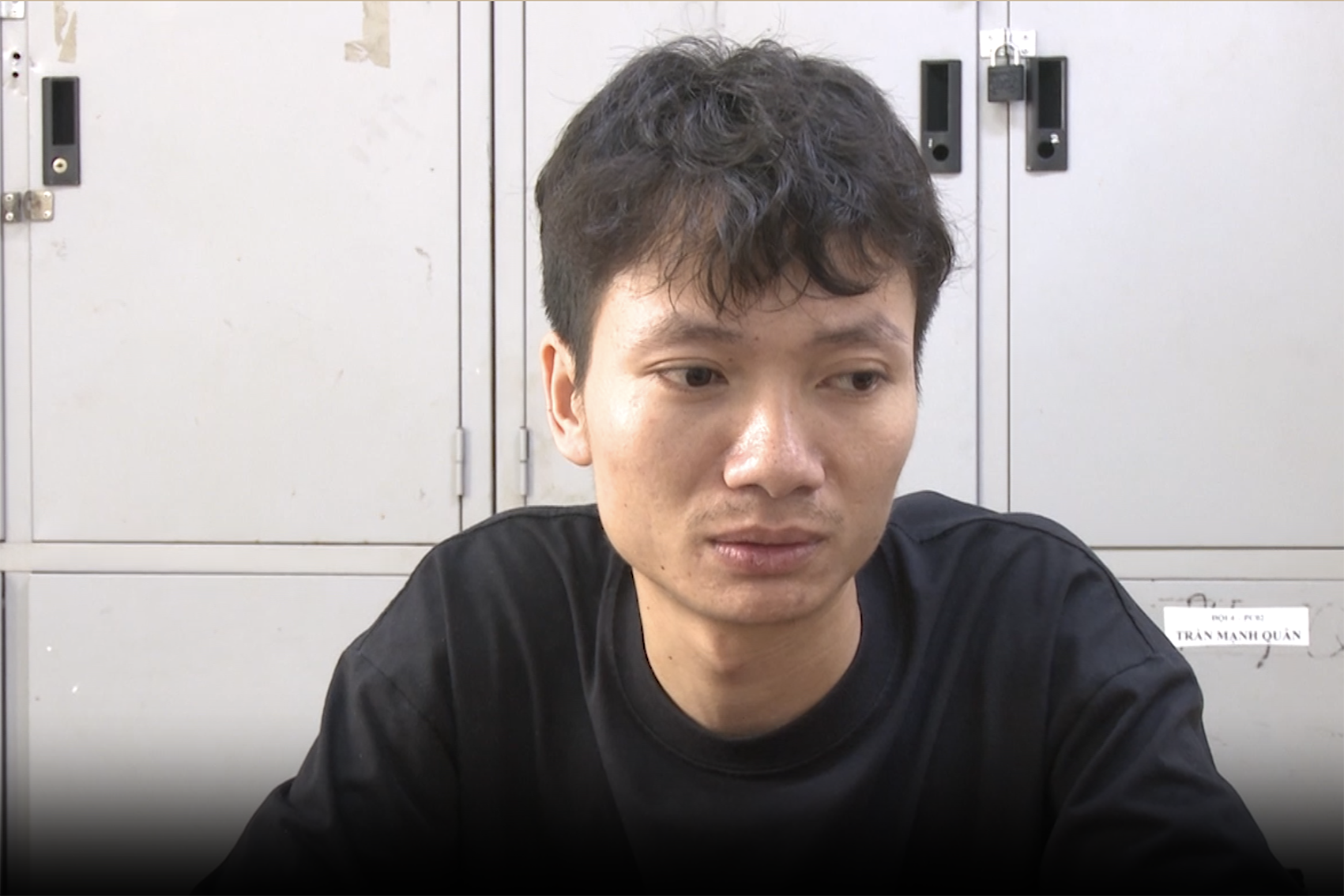
On May 9, the Quang Ninh police dismantled a cybercrime ring called "cutting stones to find jade".
The group had set up many online fanpages with catchy names such as “Da May Man” (Lucky Stone), “Da Ngoc Tho” (Raw Jade), “Do Trang Suc Giau Co” (Jewelry that brings wealth) to organize livestreams that promoted bets on cutting stones to find precious jade, luring viewers to buy betting slots before misappropriating their funds.
Led by Tran Thi Chi and Vu Van Hai, the ring collaborated with Chinese operatives, renting a house in China for its headquarters, and recruiting Vietnamese workers to work in China with salaries of 5,000-6,000 CNY/month.
Dozens of Vietnamese joined the scam, lured by promises of quick wealth. In just months, they conducted about 100,000 transactions, defrauding victims of hundreds of billions VND.
In late 2024, in another case, "Mr Pips" (Pho Duc Nam, a TikToker), became a focus nationally, not for investment success but for leading a scam network.
Nam and Le Khac Ngo recruited 1,000 employees and opened 44 offices across Vietnam to commit crimes, then trained the subjects in a very sophisticated and methodical way to approach victims to commit fraud.
The investigation team identified 2,661 victims nationwide, with authorities seizing or freezing assets worth over VND5,200 billion.
Over 1,000 students have been found involved in the Mr. Pips case. Their Ponzi-like scheme used later investors’ money to pay earlier ones, promising massive returns, while siphoning funds to Nam and his accomplices.
The virtual financial pyramid scheme operated by Mr Pips was designed as a “money spiral”: taking money from later investors to pay earlier investors, with the promise of “huge” interest rates.
Thousands of investors poured money in without knowing that they were entering a fraudulent financial game. All the money from “gullible” investors flowed into the pockets of Mr Pips and his accomplices.
In July 2024, in another case, Hanoi’s Economic Police shut down a scam tied to the Speeding.vip app, offering 0.5 percent daily returns and 12-50 percent commissions for recruiting new members, leaving thousands penniless. The masterminds bought a foreign crypto project, created fake transactions, and promoted it as globally traded.
Through cryptocurrency investment applications and wallets, the subjects created a cryptocurrency ecosystem and manipulated participants.
From March 2021 to June 2024, they built a community of investors with hundreds of thousands of accounts, with the value of investment packages shown on the system up to tens of billions of dollars.
Rural elderly among victims
The crypto craze didn’t spare rural areas. In August 2024, BacGiang’s people, including the elderly, poured their savings into DigiByte (DGB). When the system froze, lifelong savings vanished.
Most recently, the ring related to the MPX and XFI scam drew over 2,000 victims, with losses totaling VND2,000 billion. The fraudsters pitched “future energy” projects and spread false claims of international listings, exploiting trust and ignorance.
While MPX was never traded, XFI plummeted, leaving investors empty-handed. Shockingly, one ringleader was a second-year university student, who dropped out to run a billion-VND scam. Their luxury cars and villas, once symbols of “success,” have been seized for investigation.
Lessons to be learned
Lawyer Hoang Tung from TrungHoa Law Firm in Hanoi warned that no cryptocurrency has been recognized in Vietnam by the State Bank of Vietnam (SBV). Issuing or circulating them is illegal, and investors are not protected, risking total loss.
He noted that those misappropriating investment funds could face criminal charges, but recovery of the money is nearly impossible.
Lawyer Diep Nang Binh urged for a clear legal framework to regulate crypto and stronger public awareness campaigns to highlight risks. He emphasized proactive inspections, strict penalties, and international cooperation to curb cross-border crypto scams.
People should avoid sharing personal or financial details and report suspicious activities immediately.
Lawyers warned that behind “virtual profits” lie “real tragedies” that include lost homes, broken families, and even depression from financial ruin. Scams like Mr Pips, DigiByte, and MPX are wake-up calls for a society chasing quick wealth.
In a fast-evolving tech world, knowledge and caution are the best shields for protecting assets. Until laws catch up, self-protection is the first lesson to avoid financial nightmares, they said.
T. Nhung